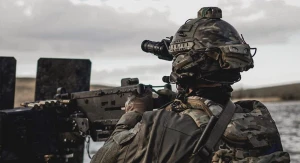
Ukraine’s security official confirms Iranian instructors killed in Crimea
Ukrainian servicemen eliminated Iranian instructors who had arrived in the temporarily occupied Crimea to help Russian troops operate ‘kamikaze’ drones supplied by Tehran to Russia
Oleksiy Danilov, secretary of Ukraine’s National Security and Defense Council, shared this in an interview with The Guardian.
Danilov confirmed that Iranian military instructors had been killed in Crimea and warned that any other Iranians in occupied Ukraine who support Moscow's invasion would also be targeted.
According to the secretary, Iranians came to Crimea to assist Russia in piloting the Shahed-136 armed drones supplied by the Iranian government, but did not specify how many of them Ukraine had killed.
“They were on our territory. We didn’t invite them here, and if they collaborate with terrorists and participate in the destruction of our nation we must kill them,” Danilov commented to the Gurdian.
He emphasized that Iran continues to insist that it allegedly does not supply weapons to Russia, but Ukraine needs confirmation.
“The Iranians keep insisting that they are not suppliers of weapons to the Russian Federation but we need confirmation. Do we have this confirmation as of today? No we don’t.We understand these things don’t fly without [people] learning how to operate them, and the Russians don’t have the brains to figure it out themselves … In the modern world you can’t hide anything. It is just a matter of time when it will be made public,” said Danilov.
It remains unclear whether Iran supplied ballistic missiles to Russia, the secretary emphasized.
“We are trying to answer this question and we’ll do everything we can to make sure it doesn’t happen. But if it does happen, it will tell us two things. First, that Russia has no capability of manufacturing their own missiles, at least in the numbers that would allow it to continue a large-scale war. Second, if a country that has been under sanctions since 1979 has a capability of producing such weapons, what kind of sanctions are we talking about? So it raises a big question about enforcement,” Danilov concluded.
- News













































